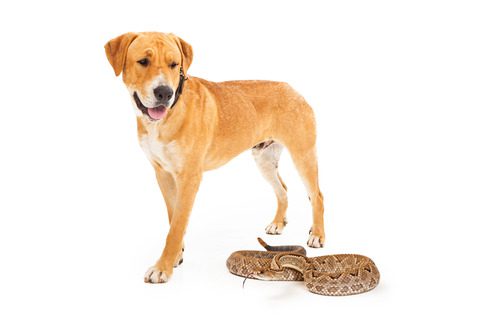Dog Bit By a Snake: What Your Next Steps Are
When your dog is bit by a snake, it can be a terrifying experience. Knowing the immediate steps to take can make all the difference in ensuring your pet receives the care they need. In this blog, we will discuss the appropriate actions to take, how to recognize snake bites, and the importance of seeking professional veterinary care.

Recognizing a Snake Bite
Understanding how to identify a snake bite on your dog is crucial. Typically, a snake bite will cause:
- Swelling
- Bruising (appearing red, blue, or black)
- Puncture wounds
- Bleeding
- Pain and whimpering
- Lethargy, disorientation, or other unusual behaviors
Types of Snakes
It’s also helpful to be aware of the types of snakes that are common in your area. In Wisconsin, you may encounter both venomous and non-venomous snakes. Venomous snakes, such as rattlesnakes, pose a significant risk and require immediate medical attention. Non-venomous snakes can still cause pain and infection, so it’s essential to treat all bites seriously.
Immediate Actions to Take
If you suspect your dog has been bitten by a snake, it’s important to act quickly and calmly. Here are the steps you should follow:
- Keep Your Dog Still: Movement can increase the spread of venom. Encourage your dog to stay as still as possible.
- Keep the Bite Area Lower: Try to keep the bite area below the level of the heart to slow the spread of venom.
- Avoid Tourniquets and Ice: These can cause more harm than good. Do not use ice or a tourniquet on the bite.
- Do Not Attempt to Suck Out Venom: This method is ineffective and can cause further injury.
- Identify the Snake: If it is safe to do so, try to take a clear photo of the snake to help with identification. This information can be helpful to your veterinarian.
- Seek Immediate Veterinary Care: Call Frontier Veterinary Urgent Care at 262-226-2055 or head to the nearest emergency vet. Prompt professional treatment is crucial.
Veterinary Treatment for Snake Bites
Upon arrival at Frontier Veterinary Urgent Care, your dog will undergo a thorough examination. The treatment plan will depend on the type of snake and the severity of the bite. Common treatments include:
- Pain Management: Your dog will receive medication to manage pain and discomfort.
- Fluid Therapy: Intravenous fluids can help to maintain blood pressure and flush out toxins.
- Wound Care: The bite area will be cleaned and treated to prevent infection.
- Monitoring and Support: Your dog will be closely monitored for any changes in their condition and given supportive care as needed.
Importance of Prompt Treatment
Prompt treatment is vital to prevent complications such as tissue damage, infection, and more severe systemic effects. Even if the bite appears minor, it is essential to have a veterinarian assess your dog to ensure they receive the necessary care.
Preventing Snake Bites
Preventing snake bites is always better than dealing with their consequences. Here are some tips to keep your dog safe:
- Keep a close eye on your dog when they are outside, especially in areas known for snake activity.
- Steer clear of tall grass, piles of leaves, and rocks where snakes may hide.
- Keeping your dog on a leash during walks can help you control their movements and prevent them from wandering into dangerous areas.
- Ensure your dog responds reliably to recall commands so you can quickly bring them back if they encounter a snake.
- Consider using snake repellents in your yard, but ensure they are pet-safe.
- Educating yourself and your family about the types of snakes in your area and training your dog to avoid snakes can also reduce the risk of encounters.
Contacting Frontier Veterinary Urgent Care
Snake bites are a serious matter, and knowing the right steps to take can make a significant difference in your dog’s recovery. If your dog has been bit by a snake, or if you have any concerns about potential encounters with snakes, contact Frontier Veterinary Urgent Care at 262-226-2055. Our team is ready to provide the immediate care and support your dog needs. Do not wait—seeking prompt professional care is the best way to ensure your pet’s health and safety.t wait—seeking prompt professional care is the best way to ensure your pet’s health and safety.
